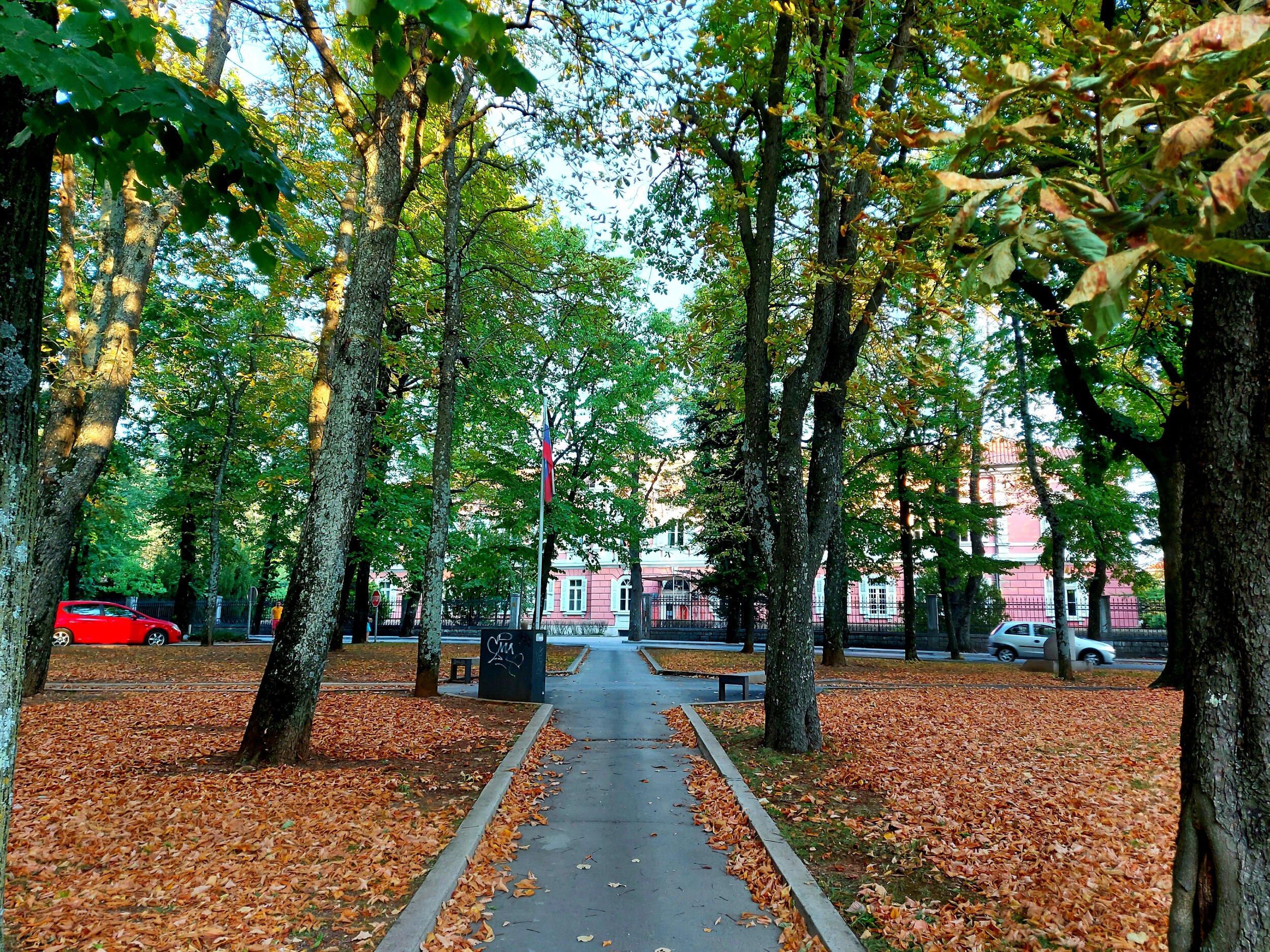4: Sežana // The Wretched Side of Travel
No interesting caption here // © John Bills
They say you should never write when you are angry. As with most times that phrasing is used, there is no ‘they’, only ‘I’. You could also counter that people write their most passionate phrases when frothing at the mouth in anger. The more measured part of my brain believes that space and perspective are integral to a good piece of writing, but that could just as well be a lack of confidence as an abundance of conviction.
So, with that in mind, I am going to write about Sežana.
Maybe some basic history will calm me down? Okay, I’ll give that a go. Sežana is a small town of some 6,000 people, 80km from Ljubljana but that fact is not as relevant as you might first think. Sežana’s interest stems in it being 17km from Trieste, a few kilometres from the modern border with Italy, a frontier town with all the trappings and history that you may have come to expect from a frontier town.
The trappings in question rarely rise above a dusty sense of waiting, the last stop before something different takes over. Modern Slovenia has ended before you get here, and modern Italy is yet to begin. Sežana is purgatory, in a southeastern Europe sense.
Sežana’s Wikipedia page doesn’t bother with pleasantries, instead beginning its historical overview in 1918, blithely stating that before that famous year it was a part of the Austrian monarchy. The beginning of the second paragraph rams it home, making note of the town’s insignificance. It only garnered raised eyebrows when it became a stop on the train line between Venice and Trieste, and even then it was a fairly unassuming one. A town, in a place, between other towns and other places.
It was in this environment that Srečko Kosovel was born, another in that long line of prodigious Slovenian poets who didn’t make it to 30, didn’t make it 25, barely made it to 22. He was born here, or at least nearby, and the violent impact of Italinisation hit him early when his Slovene teacher father was told to stop teaching his native tongue.
Such actions almost always lead to a fire burning bright in the youth of a region, and Kosovel’s flame was brighter than most. He immersed himself in the culture of his people, writing and reading like a man possessed, a boy possessed. The writing soon took over, and Kosovel was penning poetry that would transcend his own existence.
That existence ended at the tender age of 22. Kosovel had made contacts with Slovenian revolutionary groups and travelled in order to cement them, a journey that led to a cold that led to meningitis that led to death.
The life of Srečko Kosovel became secondary to his work, heartfelt and love-filled poetry that began as love letters to his people but soon bled into the avant-garde, the experimental, the impressionist. Kosovel established magazines, journals and clubs, creating a stimulating environment that encouraged art in all its forms. Like so many before and after him, he was rejected while alive, but celebrated in death.
It wasn’t necessarily helping, but it was providing some slight perspective. I had arrived in Sežana on a Sunday, it was baking hot, a timeframe that was entirely my own doing and therefore my fault, not Sežana’s. I walked from station to centre and centre to station, ripping the wheel off my case in the process. The real culprit was the shell of a conker, a vicious bastard that had found its way into the wheel and embedded itself, shredding as it went. Actually, the real culprit was me, rolling my suitcase along the streets without a care.
So I sat at a pivnica close to the train station, a pivnica that was definitely staffed but didn’t seem to have any interest in serving, or at least serving me. I sat for 20 minutes, becoming increasingly stubborn as the minutes past, establishing in my mind a picture of Sežana as a town that has given up on whatever it is that towns need in order to flourish. I could have gone up to the bar and made my presence felt, but I didn’t. Again, this could be my fault, but it isn’t. That’s that.
And thus Sežana was stuck in my mind as a town that had given up. Not as the town of Srečko Kosovel, one of the most important poets in a country full of important poets. Not of churches, not of architecture, not of charm, but of resignation. For the first time in a very long time, I found myself disliking somewhere in Slovenia.
But the anger had resided, vague mirth replacing disbelief. My anger was more about me than Sežana. more about bad luck than this railway town. What did I expect? A town smaller than Welshpool, on a Sunday. If travel is about perspective, I had lost sight of that. The train to Trieste couldn’t come quickly enough.
